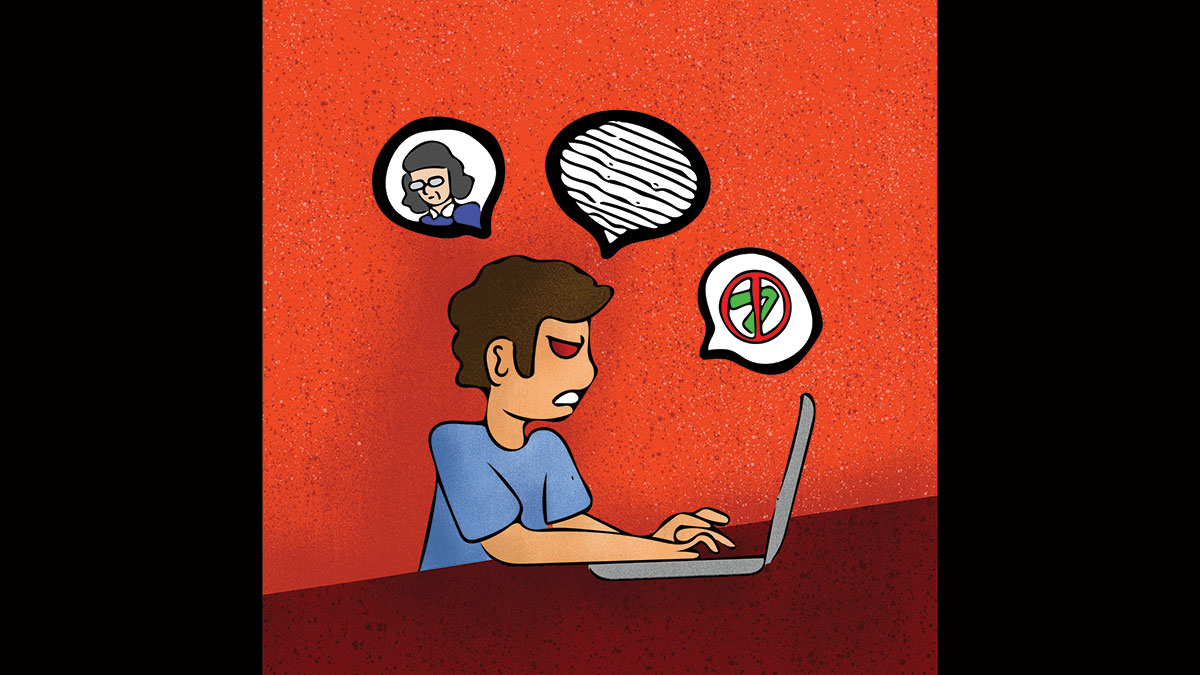 Marie Espenido
Marie EspenidoJust as ‘newsfeeds’ are often anything but reliable or factual, comment sections on familiar websites such as Rate My Professors (RMP) can be anything but truthful, objective, or fair. Posts on sites such as these are occasionally used to vent unedited personal frustrations, and unabashedly rip a professor’s teaching style and personality to shreds out of resentment.
Newly coined as ‘revenge rating’ on RMP, these posts are defined as “‘Getting even’ with a professor by writing a negative review … ” This definition preludes an article on the site suggesting how to compose a decent, objective post – I’m impressed that this article exists at all. While amounting to little more than superfluous pop-culture references decorating a skeleton of generic advice, its presence addresses the fact that these ‘revenge ratings’ are pervasive.
Along with online note databases and their potential looming legal implications, ‘revenge ratings’ can be seen as an indicator of the imperfect matrimony between student-led online academia and internet anonymity, an issue that is being largely overlooked at the moment.
To be fair, these posts aren’t always intended as revenge. No professor is perfect, and some have considerable faults that should be exposed. I wouldn’t recommend hitting the caps lock or ‘#@$!’ to get the point across though.
‘Revenge ratings’ are often callous and rude, but this is a secondary issue and doesn’t really matter. Professors have better things to do than get their feelings hurt by anonymous students, and they already have university-affiliated reviews at the end of each term to give them their fix of criticism.
However, Dr. Karsten Loepelmann, a Psychology Faculty Lecturer, says that RMP isn’t entirely ignored because “if there are people talking about us it doesn’t matter if it’s online or in real life … it could be something potentially constructive.”
Personally, I’m mostly annoyed with revenge ratings because they’re a waste of time to both produce and consume. Writers exchange their valuable time for brief, unmerited satisfaction. What’s worse, readers must slowly wade through these one-way rants by childish students. It’s a lose-lose situation. Raging student commenters would do well to remember that the target audience of RMP is not professors, and so they have little chance of ‘getting even’ with them. Comments on RMP are read first and foremost by students, and should be written with this in mind.
While searching for a scathing review to include for your enjoyment, I couldn’t find the more colourful, bitterly enjoyable ones I remember reading. Since I used the website last semester, it seems that either RMP moderators or users have upped their standards.
I’m happy to see that these comments are beginning to be acknowledged in a way that will discourage petty use of language in the first place. Censoring posts is a Band-Aid solution, and also removes the freedom of speech from these types of public forums. Since internet comment sections are here to stay, we should be focusing on preventative measures. Hopefully this will alert potential ‘revenge raters’ of what their posts actually amount to, as well as remind readers that they don’t merit being read past the first sentence.




